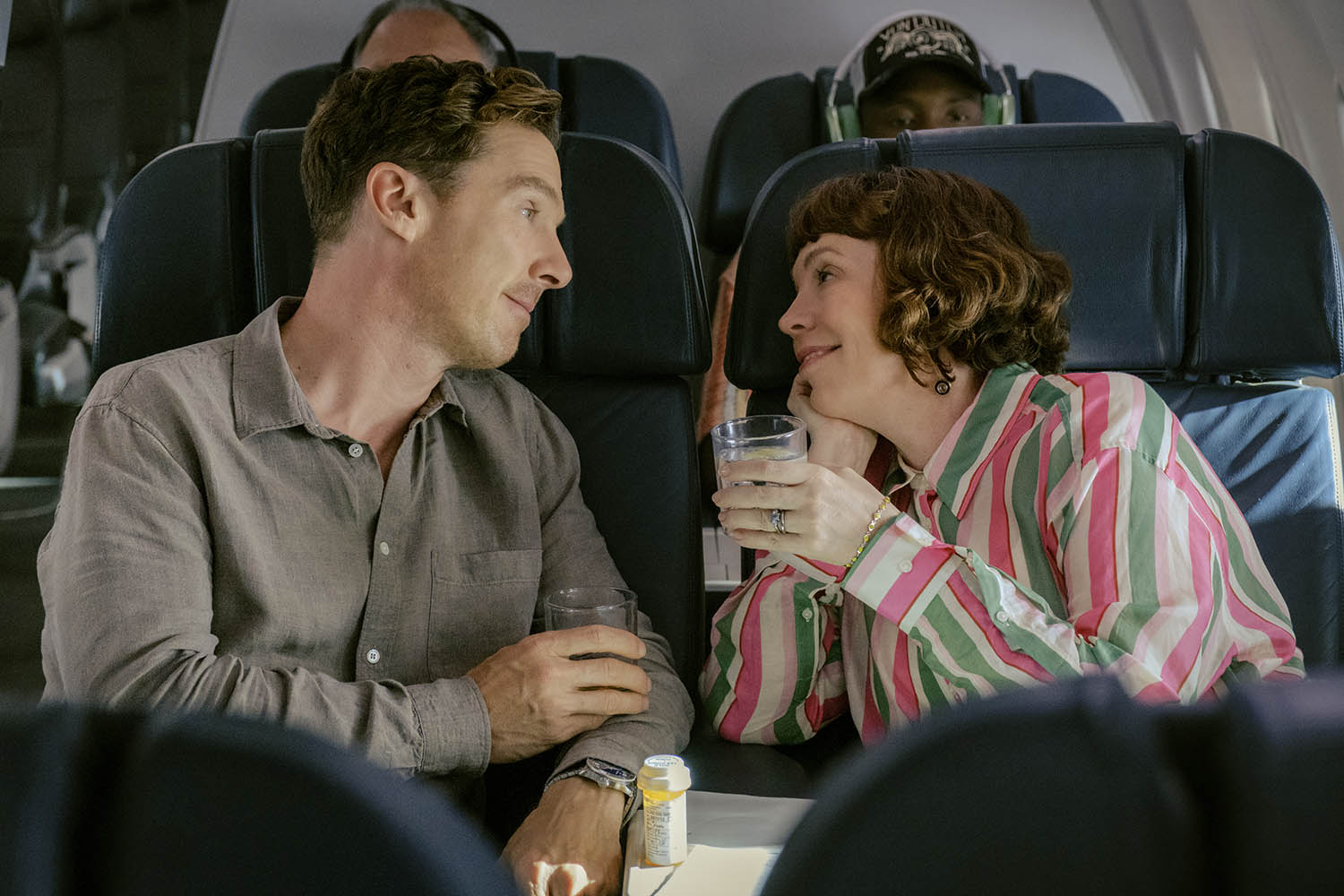To hate anyone as venomously, destructively and creatively as Ivy (Olivia Colman) and her husband, Theo (Benedict Cumberbatch), do, you first have to have loved deeply, passionately and intimately. To wound so precisely in the attack, you need to have tended the bruises and weak spots.
One of the many piquant pleasures of Jay Roach’s bracingly catty black comedy about an imploding marriage is that we believe and luxuriate in the warm embrace of the good times just as much as we relish the stab and slice of the bad ones. Colman and Cumberbatch are sublimely well matched. We adore them as a couple almost as much as we enjoy them as the bitterest of foes.
There’s an impressive comedy pedigree at play here. The Roses was adapted from a 1981 novel by Warren Adler that provided the source material for a previous, equally savage movie adaptation: The War of the Roses, starring Michael Douglas and Kathleen Turner, and directed by Danny DeVito.
This film doesn’t quite match the caustic spite and destructive energy of its predecessor, nor its distinctive direction. DeVito’s malicious glee was evident in every skewed frame of The War of the Roses; Roach, whose CV includes the Austin Powers films and Meet the Parents, takes an approach that is more traditionally screwball – a rapid-fire battle of perfectly matched wits. It’s an altogether classier entity – or as classy as it’s possible to be with this much drinking and profanity.
The cast is armed with so many killer lines, it’s a wonder there’s anyone left standing
The cast is armed with so many killer lines, it’s a wonder there’s anyone left standing
This adaptation’s key asset, aside from its two stars, is a lip-smacking, astringent screenplay by Tony McNamara that arms its cast with so many killer lines, it’s a wonder there’s anyone left standing at the end of each scene. Best known for his Oscar-nominated collaborations with Yorgos Lanthimos (The Favourite, which starred Colman as Queen Anne, and Poor Things), McNamara clearly appreciates the comedy mileage gained from allowing Colman to say the word “cunt”.
Nobody swears quite as well as Colman. It’s a joy to behold the alchemic combination of her precise timing, her sweet-but-firm enunciation and her obvious pleasure in doing it. On many levels, but particularly this one, she’s the very best in the business.
Colman’s talent for unleashing a volley of expletives is displayed at the very start of the picture, during a marriage therapy session. The couple are gently encouraged to list 10 things they love about each other. Ivy acknowledges that “he has arms”, which is, she grudgingly supposes, preferable to not having them. Theo admits that, all things considered, he would probably rather live with his wife than with a wolf. The session descends into a barrage of colourfully phrased insults that leave the therapist whimpering like a kicked puppy, and Ivy and Theo temporarily reconciled and giggling together, co-conspirators against the world once more.
The source of the rot in their marriage is, like so many doomed relationships, the work-life balance. The pair have moved from the UK to California, where Theo is excelling in his architecture career while Ivy carries the childcare and channels her cooking skills into elaborate desserts. With Theo’s support, she opens a small, informal seafood restaurant to mass indifference from the local people of Mendocino.
But then one fateful evening their fortunes switch. Theo’s career is scuppered, along with his boat-inspired museum building; Ivy’s restaurant becomes a success. Theo takes over the childcare, replacing Ivy’s sugar-based parenting with a military-style fitness regime; Ivy opens a string of celebrated eateries.
The cracks are already beginning to show when Ivy offers to bankroll Theo’s dream house – a luxury home for them to share and mend their broken relationship. A modernist marvel, it’s not so much a Le Corbusier-style “machine for living in” but rather a precision-engineered device for magnifying their tensions.
Newsletters
Choose the newsletters you want to receive
View more
For information about how The Observer protects your data, read our Privacy Policy
Ruthlessly perceptive production design seeds the house with passive-aggressive flashpoints: the ancient range cooker, formerly owned by the chef Julia Child, which ruins the lines of Theo’s pristine kitchen; the wincingly pricey Irish moss roof, the icing on the whole profligately expensive and impeccably designed cake. The house is the location for the final, fatal confrontation of their marriage (a hilariously venomous dinner party scene), and keepingit is the one non-negotiable for both of them when the divorce mediation begins.
This is fairly familiar territory but there’s much to enjoy. The Brits-in-America culture clash is thoroughly mined (an Australian, McNamara takes an equal opportunities approach to mocking both sides of the Atlantic). Andy Samberg and Kate McKinnon offer robust comic support as dysfunctionally married friends Barry and Amy. But the main pleasure is watching Cumberbatch and Colman, two actors having the best time exploring the worst breakup imaginable.
Photograph by Jaap Buitendijk

